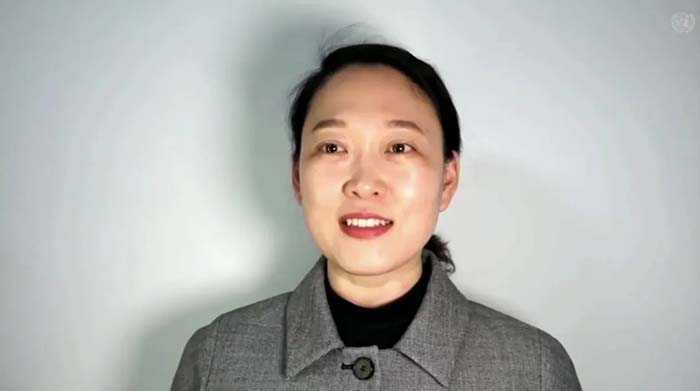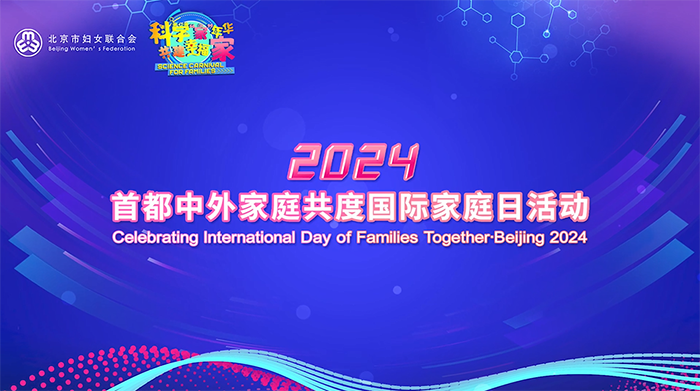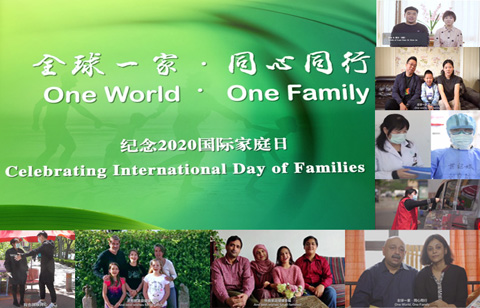Providing National-level Protection to Minors: A Review of Progress in Child Welfare Policy System, Work Mechanism
Date:2021-8-12 14:21:56 Views:Children are the future and hope of the country. The Central Committee of the Communist Party of China (CPC) and the State Council have always attached great importance to child welfare. Party committees and governments at all levels, as well as the society, are urged to care for children and create favorable conditions for their growth. General Secretary Xi Jinping has given instructions on the development of child welfare and the protection of minors.
In recent years, civil affairs departments at all levels have fully implemented the spirit of Xi's important speeches on child welfare and the protection of minors. They have been improving the policy system and work mechanism for child welfare and establishing a new development paradigm. Guarantee for the basic needs of orphans and uncared-for children has been strengthened and the care and service system for rural left-behind children whose parents work in cities and children in need has been improved to safeguard the legitimate rights and interests of minors.
Institutional Parenting: All for the Growth of Children
Huanhuan was born in Changfeng County, in East China's Anhui Province, in April 2018. He was abandoned by his parents due to congenital malformation. He was adopted by the Changfeng's social welfare center. At the beginning of this year, Huanhuan and other 21 orphans were accepted by the Hefei Welfare Center for Children. Here, he can be taken better care of and enjoy high-quality resources in all aspects of life.
In recent years, with the improvement of the work mechanism for orphan's nursery and security, the child-welfare homes have evloved from nursing institutions to comprehensive social welfare centers. From solving shortages of food and clothing to providing scientific nursing services and guiding, studying and improving society's child welfare services in general, the centers guarantee the healthy growth of 60,000 orphans across the country.
On May 25, 2021, the Ministry of Civil Affairs and other 13 departments issued a document on further promoting the quality improvement, innovation and transformation of child welfare institutions. The document aims to address problems such as the decline in the number of children in welfare institutions, increase of sick orphans, increasing demand for professional services by child welfare institutions, and inadequate institutional development.
It is hoped that the document can help optimize the allocation of resources of child welfare institutions, make the relationship between rights and responsibilities more explicit and improve service efficiency. This is a major reform in "nursing the country's children" since the founding of the People's Republic of China. It is an important measure taken by the civil affairs department to implement a new development concept, foster a new development paradigm, and promote the high-quality development of civil affairs in the current stage of China's development.
In order to implement the rules related to adoption included in the Civil Code of the People's Republic of China, the Ministry of Civil Affairs has issued a document on adoption assessment measures (trial), promoted the revision of the Measures for Registration of Adoption of Children by Chinese Citizens and other supporting policies to improve adoption registration and management and protect the legal rights and interests of adopted children.
In addition, the standard for the basic living expense of orphans has been raised, and the coverage of the "orphans medical rehabilitation plan" and the welfare lottery-funded orphans' education project has been expanded. Several policies and measures to ensure the life, education, medical rehabilitation, adoption, and placement of orphans have been promulgated, pushing child welfare undertakings toward the path of high-quality development.
Care and Protection: Heart-Warming Projects for Minors
Huaqiang is from Nankang District, Ganzhou, a city in East China's Jiangxi Province. His father suffers from rheumatic chorea and both he and his sister suffer from cerebral palsy. The family relies solely on their mother to make a living.
The Civil Affairs Bureau of Nankang arranged for its volunteers' federation to provide long-term assistance to Huaqiang. With the care and assistance of the civil affairs department and other social forces, the boy's health and overall situation greatly improved. Last year, he was admitted to a local middle school with a top score.
Left-behind children and children in need who are in similar situations like Huaqiang have always been the focus of concern for civil affairs departments. In recent years, civil affairs departments at all levels have thoroughly studied the spirit of Xi's important instructions on safeguarding children's rights and caring for left-behind children in rural areas, implemented relevant decisions of the CPC Central Committee and the State Council, and ensured services for rural left-behind children and children in need.
As of the end of the 13th Five-Year Plan period (2016-20), with the efforts of 56,000 child supervisors and 675,000 child affairs directors, left-behind children and children in need all over the country have seen their situation improve.
The policy system has also been improved. The Ministry of Civil Affairs joined hands with the Ministry of Education, the Ministry of Public Security and eight other departments to issue a document on further improving the care and service system for rural left-behind children and children in need, which clarified the responsibilities of child rescue and protection agencies, child supervisors, and child affairs directors. The document calls for improvements to be made in four areas: improving service ability, strengthening work team building, encouraging social forces to participate, and providing strong work guarantees. The document encourages child welfare institutions established by county-level civil affairs departments to transform into rescue and protection institutions for minors, handles the adoption and support of minors that meet the requirements on temporary guardianship of civil affairs departments based on laws, and coordinates guardianship evaluations, case consultations, service contracting, psychological care and other forms of assistance.
The Ministry of Civil Affairs and relevant departments also jointly issued a document on further strengthening the protection of uncared-for children, in accordance with the principles for protecting orphans, strengthening protection in terms of life, medical care, education, and guardianship and filling the gaps in the child welfare system.
The leadership coordination mechanism has also been improved. In August 2018, the State Council approved the establishment of an inter-ministerial joint conference system for the care and protection of rural left-behind children and the guaranttee for children in need. Most provinces across the country have formed a leadership coordination mechanism which requires officials who are responsible for children's affairs to be conveners of the joint conferences.
In order to implement the newly revised Law of the People's Republic of China on the Protection of Minors and strengthen the overall planning, coordination, supervision and guidance of the protection of minors to secure minors' physical and mental health and protect their legitimate rights and interests, on April 21, 2021, the State Council set up a leading group for the protection of minors as one of the State Council's deliberation and coordination offices. The office of the leading group is located at in the Ministry of Civil Affairs to carry out the daily work. As of the end of May, all regions around the country have established leading groups (committees) for the protection of minors, with offices sitting in their civil affairs departments.
The foundation for work has been strengthened. A national child welfare information system has been developed, and all regions are urged to use the system to accurately obtain the basic information of rural left-behind children and update on a regular basis. A targeted care and protection campaign has been carried out for children in rural areas to help ensure family guardianship, compulsory reporting, household registration and education. Almost all rural left-behind children have been ensured to have guardians and the quality of family guardianship for left-behind children in rural areas has been improved.
A document on implementing the inter-provincial administration work on application for recognition of orphans and uncared-for children has been issued and implemented nationwide since June 30 this year.
The documents and measures have effectively protected the healthy growth of children.
Collaboration: Care and Love for Children
According to China's law on the protection of minors, any organization or individual has the right to dissuade, stop or report to relevant departments, such as public security, civil affairs, or education departments in the event of harm to the physical and mental health of minors or to the legal rights and interests of minors.
In 2020, nine departments, including the Ministry of Civil Affairs and the Supreme People's Procuratorate established a mandatory reporting system for crime aginst minors, setting nine categories of illegal violations of the rights of minors. Relevant entities and individuals must report such cases immediately. As of September 2020, nearly 500 cases had been filed, reviewed and prosecuted through mandatory reports.
Many cases of guardianship violations that occurr within families were discovered in time by medical staff according to regulations. Some cases involving the harm to left-behind children and mentally handicapped children are reported by teachers so that children can be protected in time. The mandatory reporting system has played an important role.
The growth of minors is inseparable from the joint participation and protection of families, schools, society and the government. According to China's law on the protection of minors, "To protect minors is the common responsibility of State organs, armed forces, political parties, organizations, enterprises and institutions, self-governing organizations of mass character at grassroots level in urban and rural areas, guardians of minors, and other adult citizens."
The law also highlights the "six major protections," namely family protection, school protection, social protection, Internet protection, government protection, and judicial protection. This reveals that the country has paid close attention to the growth of minors and enhanced efforts to guide society to care for minors.
"We have the responsibility and determination to promote the formation of a minor guardianship system with family guardianship at the core, supplmented by support, supervision and intervention of guardianship and with national guardianship as the basic guaranttee. We will work hard to provide sufficient guardianship and care for minors," an official with the Child Welfare Department of the Ministry of Civil Affairs said at a press conference on the protection of minors held by the Information Office of the State Council.
This year marks the beginning of the 14th Five-Year Plan period (2021-25). According to the newly-released plan for the development of civil affairs during the 14th Five-Year Plan period, the government will focus on improving child welfare service level and the minors' protection system and providing more care for children in need and left-behind children and women. We believe that with more new policies, the child welfare undertaking will thrive and more children will embrace a brighter future.



